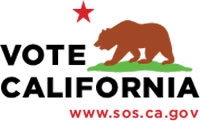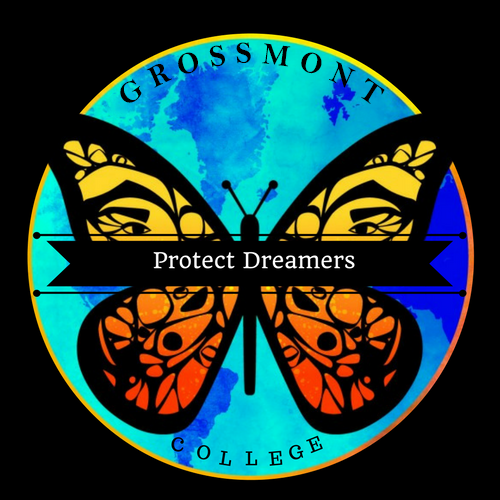Nondiscrimination Notice
The Grossmont-Cuyamaca Community College District (GCCCD) is committed to providing learning and working environments that ensure and promote diversity, equity, and inclusion. People of diverse backgrounds, perspectives, socioeconomic levels, cultures, and abilities are valued, welcomed, and included in all aspects of our organization.
GCCCD strives to provide an educational environment that fosters cultural awareness, mutual understanding, and respect that ultimately also benefits the global community.
No person shall be unlawfully subjected to discrimination or denied full and equal access to District programs or activities on the basis of ethnic group identification, race, color, national origin, religion, age, sex or gender, physical disability, mental disability, ancestry, sexual orientation, marital status, veteran status, or on the basis of these perceived characteristics, or based on association with a person or group with one or more of these actual or perceived characteristics. District programs and activities include, but are not limited to any that are administered or funded directly by or that receive any financial assistance from the California Community Colleges Chancellor’s Office.
The Chancellor shall establish administrative procedures that ensure all members of the college community can present complaints regarding alleged violations of this policy and have complaints heard in accordance with the Title 5 regulations and those of other agencies that administer state and federal laws regarding nondiscrimination.
No District funds shall be used for membership or for any participation involving financial payment or contribution on behalf of the District or any individual employed by or associated with the District, to any private organization whose membership practices are discriminatory on the basis of groups mentioned above. (Board Policy 3410)
Inquiries regarding the equal opportunity policies, the filing of grievances or for requesting a copy of the college’s grievance procedures may be directed to:
- Michael Salvador, GCCCD District Director and Title IX Coordinator
Grossmont College, 8800 Grossmont College Drive, Bldg. 38H, El Cajon, CA 92020-1799
(619) 644-7039 - Sara Varghese, Dean, Student Affairs
8800 Grossmont College Drive, El Cajon, CA 92020-1799
(619) 644-7600
Grossmont College recognizes its obligation to provide overall program accessibility for those with physical and mental disabilities. Contact the Disabled Students Programs and Services department at (619) 644-7112, tone device for deaf (619) 644-7119, Room 60-120 to obtain information on programs and services, activities and facilities on campus and for a geographical accessibility map.
Inquiries regarding federal laws and regulations concerning nondiscrimination in education or the college’s compliance with those provisions may also be directed to:
Office for Civil Rights
San Francisco Office
U.S. Department of Education
50 Beale Street, Suite 7200
San Francisco, CA 94105-1813
Telephone: (415) 486-5555
Facsimile: (415) 486-5570
Email:OCR.SanFrancisco@ed.gov
SEXUAL HARASSMENT
LEGAL BACKGROUND: Guidelines of Title VII of the Civil Rights Act focus upon sexual
harassment as an unlawful practice. “Sexual harassment like harassment on the basis
of color, race, religion or national origin, has long been recognized by the Equal
Employment Opportunity Commission as a violation of Section 703 of Title VII of the
Civil Rights Act as amended” (Federal Register, April 11, 1980). Interpretation of
Title IX of the Education Amendments similarly delineates sexual harassment as discriminatory
and unlawful.
DEFINITION: Sexual harassment is defined in GCCCD Policy 3430 as the following:
Unwelcome sexual advances, requests for sexual favors, and other conduct of a sexual nature when:
-
Submission to the conduct is made a term or condition of an individual’s employment, academic status, or progress;
-
Submission to or rejection of the conduct by the individual is used as a basis of employment or academic decisions affecting the individual;
-
The conduct has the purpose or effect of having a negative impact upon the individual’s work or academic performance, or of creating an intimidating, hostile or offensive work or education environment; or
-
Submission to or rejection of the conduct by the individual is used as the basis for any decision affecting the individual.
PROCESS: Complaints must be filed within 180 days of the date the alleged unlawful discrimination occurred, except that this period shall be extended by no more than 90 days following the expiration of the 180 days if the complainant first obtained knowledge of the facts of the alleged violation after the expiration of the 180 days (California Code Regulations, Title 5, Section 59328e).
If the alleged harasser is a student, initial action on the complaint shall be the joint responsibility of the Dean, Student Affairs and the Director of Employee and Labor Relations.
If the alleged harasser is an employee, initial action on the complaint shall be the joint responsibility of the employee’s immediate supervisor and the Director of Employee and Labor Relations.


